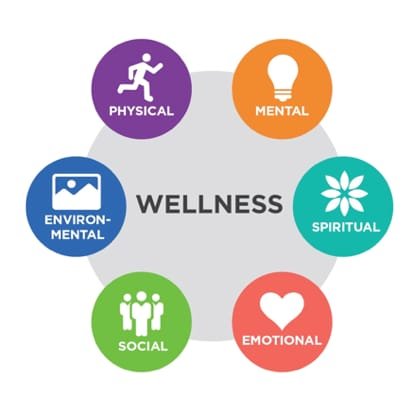VITAMINS HEALTH AND WELLNESS
Vitamins, health, and wellness
Vitamins are essential organic compounds that the body needs in small amounts to perform various metabolic functions, support growth and development, and maintain overall health. There are 13 essential vitamins, which are crucial for the body to function properly. They are classified as either fat-soluble (A, D, E, and K) or water-soluble (C and the B-complex vitamins), according to MedlinePlus.
Key roles of vitamins in health and wellness
Immunity: Many vitamins, including A, C, D, E, K, and B vitamins like B6, B12, and folate, contribute to a healthy immune system, helping the body fight off infections and illnesses.
Energy production and metabolism: B vitamins are particularly important in converting food into energy and supporting metabolism.
Bone health: Vitamins D and K, alongside minerals like calcium and magnesium, are crucial for maintaining strong bones and preventing conditions like osteoporosis.
Vision and eye health: Vitamin A is vital for healthy vision and helps protect the eyes from age-related decline.
Skin, hair, and nail health: Vitamins like A, C, E, and biotin contribute to the health and vitality of skin, hair, and nails.
Brain and nervous system function: B vitamins support healthy brain function and the nervous system, with B12 playing a key role in nerve maintenance.
Blood health: Vitamin K is essential for normal blood clotting, while B12 and folate are necessary for the formation of red blood cells.
Obtaining vitamins and the role of supplements
A balanced diet that includes a variety of fruits, vegetables, whole grains, lean proteins, and healthy fats is the best way to get the vitamins and minerals your body needs. In situations where dietary intake may be insufficient, such as during pregnancy, due to dietary restrictions (e.g., veganism), or certain medical conditions, vitamin supplements can be considered to fill the gaps.
Important considerations regarding vitamin supplements
Consult a healthcare professional: Before starting any vitamin supplement regimen, it is crucial to discuss it with a doctor or a registered dietitian to determine individual needs and appropriate dosages.
Avoid excessive intake: More is not necessarily better when it comes to vitamins, particularly with fat-soluble vitamins (A, D, E, K) that can accumulate in the body and potentially lead to toxicity at high doses.
Potential interactions: Some vitamins and supplements can interact with medications or have adverse effects, notes the American Cancer Society. It’s crucial to inform your healthcare provider about all supplements you are taking.
Quality and regulation: The dietary supplement industry is not regulated in the same way as prescription drugs, says The Washington Post.
In summary, vitamins are indispensable for maintaining good health and overall well-being. A balanced diet should be the primary source of these essential nutrients.
Supplementation can be beneficial in certain circumstances, but it’s important to approach it with caution, under the guidance of a healthcare professional, and be mindful of potential risks associated with high doses or interactions with medications.

Holistic Herbs
Holistic herbs are a cornerstone of herbal medicine, a practice that emphasizes treating the whole person – mind, body, and spirit – rather than just focusing on symptoms. This approach views humans as interconnected with nature and uses plants to support the body’s innate healing capabilities.
Core principles of holistic herbalism
Treating the whole person: Herbalists consider physical, emotional, mental, and spiritual aspects of health when recommending herbs.
Identifying and addressing the root cause: Instead of just suppressing symptoms, holistic herbalism aims to uncover and treat the underlying causes of illness.
The healing power of nature: This principle acknowledges the body’s inherent ability to heal itself and utilizes herbs to support and enhance that process.
Do no harm: Herbalists generally prioritize using the least invasive and harmful therapies possible.
Doctor as teacher: Patient education is emphasized, empowering individuals to take an active role in their health and well-being.
Prevention: Holistic herbalism promotes lifestyle modifications and practices that help maintain health and prevent disease before symptoms appear.
Benefits and uses of holistic herbs
Herbs are used to address a wide range of conditions and support overall wellness, including:
Stress and anxiety management:
Adaptogenic herbs, like Ashwagandha, are used to help the body adapt to stress and reduce cortisol levels. Other herbs like chamomile and lavender are known for their calming properties.
Digestive health: Herbs with anti-inflammatory and antioxidant compounds can soothe the digestive tract, aid digestion and nutrient absorption, and relieve nausea.
Examples include peppermint, ginger, licorice root, and slippery elm.
Immune system support: Herbs like echinacea, elderberry, and certain mushrooms like reishi and chaga, are believed to boost immune function.
Hormonal balance: Herbs such as black cohosh and wild yam may help support hormone balance, especially in those impacted by environmental toxins.
Pain management: Anti-inflammatory and antioxidant herbs can be used as natural alternatives to conventional pain relief.
Skin, hair, and nail health: Vitamins and herbs like A, C, E, and biotin are important for healthy skin, hair, and nails.
Forms and methods of use
Holistic herbs can be incorporated into daily routines in various ways, including:
Teas: Steeping fresh or dried herbs in hot water creates a therapeutic beverage.
Tinctures: Concentrated herbal extracts can be taken in small doses, often by adding them to water or placing them under the tongue.
Culinary uses: Herbs can be added to dishes for flavor and nutrition, such as in soups, stews, salads, and marinades.
Topical applications: Herbs infused into oils and combined with beeswax can be made into soothing balms and salves for skin conditions.
Essential oils: Highly concentrated extracts used in aromatherapy, massage, and skincare.
Important considerations
While herbal medicine has a long history of use and can offer numerous benefits, it’s essential to be aware of certain considerations:
Consult a healthcare professional: It’s crucial to discuss using holistic herbs with your doctor, especially if you’re pregnant, breastfeeding, or taking other medications, due to potential interactions and side effects.
Product quality: The quality of herbal supplements can vary, and some may contain unlisted ingredients or contaminants.
Potential risks and side effects: Herbs are powerful, and while generally gentle, some can be toxic or cause adverse reactions, particularly at high doses or with improper use. Always follow recommended dosages and consult with a qualified herbalist or healthcare provider.
Note: The information provided here is for general knowledge and should not be taken as medical advice. Always consult with a healthcare professional before using herbal remedies or making any changes to your healthcare routine.
Holistic Herbs
Holistic herbs are a cornerstone of herbal medicine, a practice that emphasizes treating the whole person – mind, body, and spirit – rather than just focusing on symptoms. This approach views humans as interconnected with nature and uses plants to support the body’s innate healing capabilities.
Core principles of holistic herbalism
Treating the whole person: Herbalists consider physical, emotional, mental, and spiritual aspects of health when recommending herbs.
Identifying and addressing the root cause: Instead of just suppressing symptoms, holistic herbalism aims to uncover and treat the underlying causes of illness.
The healing power of nature: This principle acknowledges the body’s inherent ability to heal itself and utilizes herbs to support and enhance that process.
Do no harm: Herbalists generally prioritize using the least invasive and harmful therapies possible.
Doctor as teacher: Patient education is emphasized, empowering individuals to take an active role in their health and well-being.
Prevention: Holistic herbalism promotes lifestyle modifications and practices that help maintain health and prevent disease before symptoms appear.
Benefits and uses of holistic herbs
Herbs are used to address a wide range of conditions and support overall wellness, including:
Stress and anxiety management:
Adaptogenic herbs, like Ashwagandha, are used to help the body adapt to stress and reduce cortisol levels. Other herbs like chamomile and lavender are known for their calming properties.
Digestive health: Herbs with anti-inflammatory and antioxidant compounds can soothe the digestive tract, aid digestion and nutrient absorption, and relieve nausea.
Examples include peppermint, ginger, licorice root, and slippery elm.
Immune system support: Herbs like echinacea, elderberry, and certain mushrooms like reishi and chaga, are believed to boost immune function.
Hormonal balance: Herbs such as black cohosh and wild yam may help support hormone balance, especially in those impacted by environmental toxins.
Pain management: Anti-inflammatory and antioxidant herbs can be used as natural alternatives to conventional pain relief.
Skin, hair, and nail health: Vitamins and herbs like A, C, E, and biotin are important for healthy skin, hair, and nails.
Forms and methods of use
Holistic herbs can be incorporated into daily routines in various ways, including:
Teas: Steeping fresh or dried herbs in hot water creates a therapeutic beverage.
Tinctures: Concentrated herbal extracts can be taken in small doses, often by adding them to water or placing them under the tongue.
Culinary uses: Herbs can be added to dishes for flavor and nutrition, such as in soups, stews, salads, and marinades.
Topical applications: Herbs infused into oils and combined with beeswax can be made into soothing balms and salves for skin conditions.
Essential oils: Highly concentrated extracts used in aromatherapy, massage, and skincare.
Important considerations
While herbal medicine has a long history of use and can offer numerous benefits, it’s essential to be aware of certain considerations:
Consult a healthcare professional: It’s crucial to discuss using holistic herbs with your doctor, especially if you’re pregnant, breastfeeding, or taking other medications, due to potential interactions and side effects.
Product quality: The quality of herbal supplements can vary, and some may contain unlisted ingredients or contaminants.
Potential risks and side effects: Herbs are powerful, and while generally gentle, some can be toxic or cause adverse reactions, particularly at high doses or with improper use. Always follow recommended dosages and consult with a qualified herbalist or healthcare provider.
Note: The information provided here is for general knowledge and should not be taken as medical advice. Always consult with a healthcare professional before using herbal remedies or making any changes to your healthcare routine.


